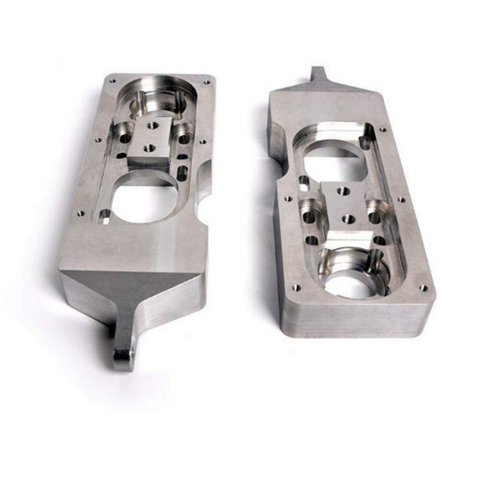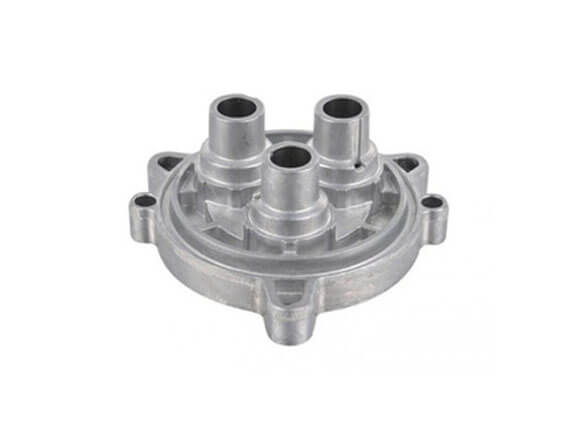The Effect of Ingenious Factory Services on Lasting Manufacturing Practices
Ingenious shop solutions play an important role beforehand sustainable production methods. By integrating recycling innovations and energy-efficient processes, these solutions significantly decrease ecological influence. Factories can reclaim useful products, consequently lowering reliance on virgin resources. As automation and lean manufacturing concepts obtain traction, manufacturing efficiency is optimized. However, the full level of these innovations and their ramifications for the future of producing stay to be checked out.
The Function of Advanced Recycling Technologies in Foundries
Advanced recycling technologies are transforming the landscape of shops by boosting material healing and decreasing waste. These innovative procedures permit factories to recover important steels and products from scrap, lessening reliance on virgin resources. By integrating innovative sorting, shredding, and melting strategies, factories can efficiently remove useful products from thrown out products, thus advertising a round economy.
These modern technologies support the production of high-quality alloys and parts, ensuring that recycled materials satisfy rigid sector criteria. As an outcome, shops are not only boosting their material performance yet likewise decreasing the environmental influence related to traditional manufacturing approaches
This shift in the direction of advanced recycling not just reinforces financial practicality for shops but also straightens with global sustainability goals. Inevitably, the incorporation of these modern technologies represents a substantial progression in the pursuit for sustainable manufacturing techniques within the factory field.
Power Effectiveness: Minimizing Intake in Production Processes
Power efficiency in making procedures is vital for lasting operations. Techniques such as process optimization strategies, renewable resource assimilation, and waste warmth recuperation play vital roles in decreasing power consumption. By concentrating on these areas, makers can substantially lower their ecological influence while improving efficiency.
Refine Optimization Techniques
A substantial variety of making facilities are increasingly taking on process optimization strategies to boost energy performance and lower consumption. These strategies include evaluating and improving production workflows, recognizing bottlenecks, and executing automation to enhance operations. By leveraging data analytics, producers can keep track of energy use in real-time, making it possible for positive changes to minimize waste. Strategies such as Lean Production and 6 Sigma concentrate on optimizing and removing inadequacies resource allocation. In addition, progressed modern technologies like Net of Things (IoT) sensing units give understandings into equipment efficiency, promoting predictive maintenance that avoids energy loss. Overall, these procedure optimization methods not just add to minimized energy intake however additionally cultivate a society of continuous enhancement within making settings, straightening functional practices with sustainability objectives.
Renewable Power Assimilation
Several manufacturing centers are progressively incorporating renewable resource sources to improve general energy effectiveness and minimize reliance on conventional power grids. This modification includes the adoption of solar, wind, and biomass power, which can greatly lower functional costs and reduce carbon footprints. By making use of these sustainable energy resources, suppliers not only lessen their environmental effect but likewise boost power durability. Furthermore, incorporating renewable resource systems frequently includes innovative modern technologies such as power storage and clever grid options, which enhance power usage and facilitate real-time tracking. This combination sustains manufacturers in attaining regulative conformity and conference sustainability objectives while fostering innovation in production processes. Eventually, renewable resource combination stands for a crucial change towards even more sustainable production methods and long-lasting practicality.
Waste Heat Recovery
Integrating renewable power resources sets the stage for more advancements in power performance, especially through the execution of waste warmth healing systems. These systems catch excess thermal energy generated during producing processes, which would otherwise be shed to the setting. By repurposing this warm, factories can significantly minimize their energy consumption, lower functional expenses, and decrease their carbon impact. The recouped warm can be used for various applications, such as heating, power generation, or pre-heating basic materials. Because of this, waste warmth recuperation not only enhances power efficiency however also adds to a lasting manufacturing version. Cutting-edge shop solutions that prioritize this technology are leading the way for an ecologically accountable commercial landscape, aligning earnings with eco-friendly stewardship.
Using Eco-Friendly Materials in Foundry Procedures
As the need for lasting production techniques expands, shops are increasingly transforming to environment-friendly products to improve their operations. By integrating lasting alternatives, such as recycled steels and bio-based binders, foundries can considerably minimize their ecological impact. These products typically need less energy for processing and can decrease unsafe discharges throughout manufacturing.
The fostering of environmentally friendly materials not just straightens with regulatory requirements however also satisfies customer preferences for greener products. Factories are discovering ingenious alternatives, such as using natural additives that boost mold and mildew quality while remaining non-toxic.
The shift to sustainable products cultivates a circular economy by promoting source reuse and reducing waste. Furthermore, this adjustment can improve the total efficiency of foundry operations, as green products frequently display premium residential properties, bring about enhanced item performance - aluminum casting. Ultimately, the application article of environment-friendly materials represents an essential action toward sustainable manufacturing in the foundry sector

Technologies in Waste Management and Reduction Techniques
The shift in the direction of environment-friendly products in shop procedures leads the way for improvements in waste management and reduction methods. Ingenious factory services are increasingly adopting strategies that decrease waste generation and promote recycling. Strategies such as closed-loop systems permit the reuse of materials, substantially decreasing the volume of waste created during making processes. Additionally, innovations in filtering and splitting up modern technologies allow the efficient recuperation of important byproducts, which can be reintegrated right into the production cycle.
The execution of real-time tracking systems gives data-driven insights into waste generation patterns, assisting in notified decision-making to enhance source use. Factories are also discovering biowaste remedies, transforming natural waste into power or functional materials, further promoting sustainability. These advancements not only add to a circular economic situation however likewise boost the overall ecological performance of factory procedures, emphasizing the market's commitment to lowering its eco-friendly impact.
The Influence of Automation on Sustainable Production
While lots of industries purpose for sustainability, automation emerges YOURURL.com as a vital factor in boosting sustainable manufacturing methods within shops. By integrating automated systems, foundries can achieve better efficiency, lower waste, and lower energy intake. Automated processes permit precise control over production specifications, minimizing problems and remodel, which consequently saves resources.
In addition, automation promotes the surveillance of ecological impacts, enabling real-time adjustments that align with sustainability goals. Aluminum Casting Company. Advanced robotics and synthetic intelligence can optimize product use, causing considerable decreases in scrap and exhausts
Additionally, automated innovations promote much safer workplace by managing unsafe jobs, thus improving worker wellness while guaranteeing conformity with environmental policies. Generally, the fostering of automation within factories not just enhances operations however also plays an essential role ahead of time sustainable production methods, contributing to an extra accountable industrial landscape.
Situation Studies: Effective Execution of Sustainable Factory Practices
Successful execution of lasting methods in shops can be illustrated through numerous study that highlight quantifiable results and ingenious methods. One noteworthy example is a mid-sized shop that took on a closed-loop water recycling system, minimizing water usage by 40% and lowering wastewater generation. Additionally, this center changed to using environmentally friendly mold and mildew materials, which not just improved product top quality however also boosted worker safety.
An additional considerable instance included a large foundry integrating sustainable energy sources, such as photovoltaic panels, which counter 30% of its energy needs. This effort not just decreased operational costs however likewise added to a considerable decrease in carbon exhausts.
A shop that executed lean production techniques reported a 25% boost in performance, leading to less material waste and optimized production processes. These cases jointly emphasize the tangible benefits and sustainability improvements attainable with cutting-edge foundry methods.
Frequently Asked Concerns
How Do Ingenious Foundry Services Add To Total Sustainability Objectives?
Innovative shop solutions enhance overall sustainability goals by optimizing resource use, reducing waste, and enhancing power efficiency. These innovations add to decrease carbon impacts and advertise environmentally responsible techniques within the production industry, supporting wider sustainability campaigns.
What Are the Economic Benefits of Adopting Sustainable Foundry Practices?
Adopting lasting shop techniques can reduce functional expenses, improve source effectiveness, and enhance competition. Additionally, these techniques can bring in eco-conscious customers and capitalists, ultimately bring about boosted productivity and lasting economic feasibility for companies.
Just How Can Small Shops Implement Lasting Innovations Properly?
Little factories can implement lasting advancements efficiently by embracing energy-efficient modern technologies, enhancing source use, educating team on sustainable practices, collaborating with distributors for green materials, and involving in constant renovation processes to minimize waste and exhausts.
What Certifications Exist for Sustainable Shop Workflow?

Exactly How Do Consumer Preferences Impact Sustainable Production in Foundries?
Customer choices greatly influence sustainable manufacturing in factories by driving need for eco-friendly products. As consumers focus on sustainability, foundries adapt their methods, including greener materials and technologies to meet market Get More Info assumptions and improve their affordable advantage.
By repurposing this heat, foundries can substantially reduce their power intake, lower operational prices, and decrease their carbon impact. Foundries are also checking out biowaste options, converting natural waste right into energy or useful products, even more promoting sustainability. By integrating automated systems, foundries can attain higher efficiency, reduce waste, and reduced energy consumption. An additional considerable case entailed a big foundry incorporating eco-friendly energy resources, such as solar panels, which counter 30% of its power needs. Ingenious foundry solutions improve general sustainability objectives by enhancing resource use, lowering waste, and enhancing power effectiveness.